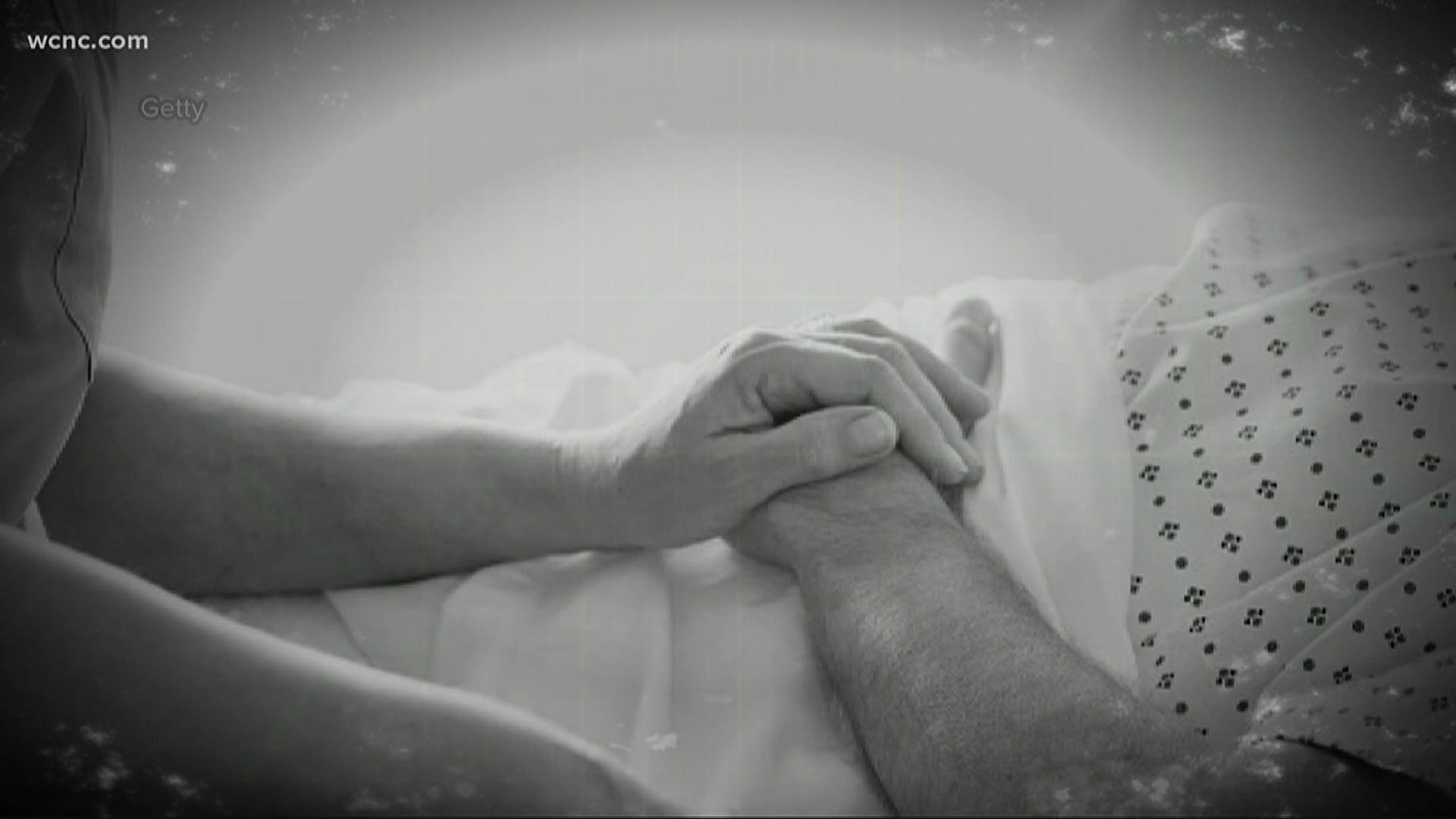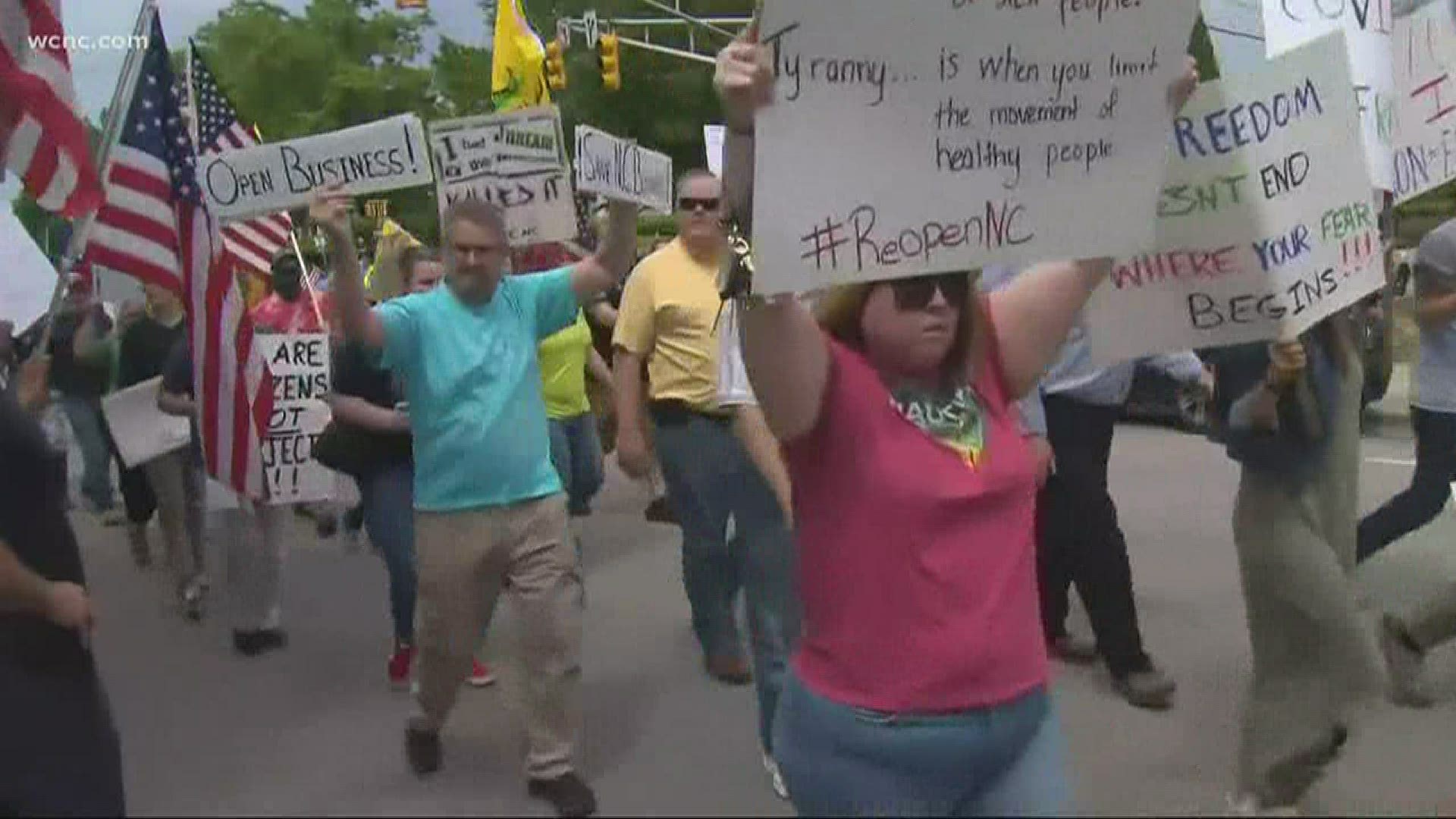CHARLOTTE, N.C. — North Carolina announced another 399 COVID-19 deaths Friday, an increase of 21 since Thursday, but the numbers provided by the state don't give an accurate picture of the actual death toll.
The state and Mecklenburg County are both reviewing death certificates with the expectation additional deaths will be identified. Right now, they only report deaths of people who tested positive and never fully recovered from COVID-19, according to the North Carolina Department of Health and Human Services.
"Laboratory confirmed deaths are the deaths reported on the NCDHHS webpage," Communications Manager Kelly Haight Connor said. "The second source of data for COVID-19 deaths is from death certificates. These are filled out by the physician and indicate what the physician thinks caused the patient's death. For a physician to put COVID-19 as a cause of death on a death certificate, the patient does not have to have a laboratory test. Because death certificates do not require a positive laboratory test, there will likely be many more deaths based on death certificate data than on laboratory data. However, death certificates take time to process and will not be available until weeks after they are submitted...Death certificate data will come into play, but that will take time when someone's death certificate has COVID-19 as a cause (and was not a lab-confirmed case) and is processed."
The Mecklenburg County Health Department confirmed it is tracking probable COVID-19 deaths by reviewing new death certificates and going back over previously filed vital records. In fact, the county has already identified one probable COVID-19 death awaiting final review by the state.
"In early April, CDC released guidance to the medical/public health community on certifying deaths due to COVID-19," a county spokesperson said.
"Deaths, where COVID-19 is reasonably suspected, but not laboratory-confirmed, should be indicated on the death certificate by the certifying physician as 'probable' or 'presumed' COVID-19, along with other underlying causes of death. In response to this guidance, MCPH set up a surveillance system within our vital records unit to track probable/presumed COVID-19-related deaths, as noted on new death certificates. We also conducted a retrospective review of death certificates to ensure none occurred prior to this guidance. Based on current information, there has been one death in Mecklenburg County that appears to meet CDC criteria for probable COVID-19-related death. The state must finalize these death certificates, including whether they meet CDC's criteria for presumed/probable COVID-19 and the final cause of death. We are monitoring these deaths and will be conducting follow-up and contact tracing, where appropriate. We will not be including these in our routine reporting about laboratory-confirmed cases and outcomes."
Earlier this week, South Carolina identified 29 additional deaths after a cross-analysis of death certificates there, which led to a 14 percent single-day increase in the number of deaths linked to COVID-19.
"I think it's perfectly reasonable to think that there were coronavirus deaths that occurred before people knew what it was," North Carolina Gov. Roy Cooper said Friday.
Among the growing number of people taken by COVID-19 is 78-year-old Bill Bauer.
"Losing a loved one to this virus is horrible and the things that it does to you while your sick, I would not want that on anybody," his daughter Mary Catherine Hinds said
Bauer died last month after spending two weeks on a ventilator.
"My dad was my absolute favorite person in the whole world," she said. "He was kind and smart and hardworking, just really devoted to the family."
Since her dad tested positive for the virus and never recovered, he is counted among the 399 now confirmed deaths in North Carolina, but his daughter couldn't believe some deaths have yet to be reported.
"When I found out that we might not have an accurate count, that was just really scary to me to think that we might be making decisions without this full picture," she said. "I think the more we know, the better we can protect our loved ones."
MORE NEWS ON WCNC CHARLOTTE:


